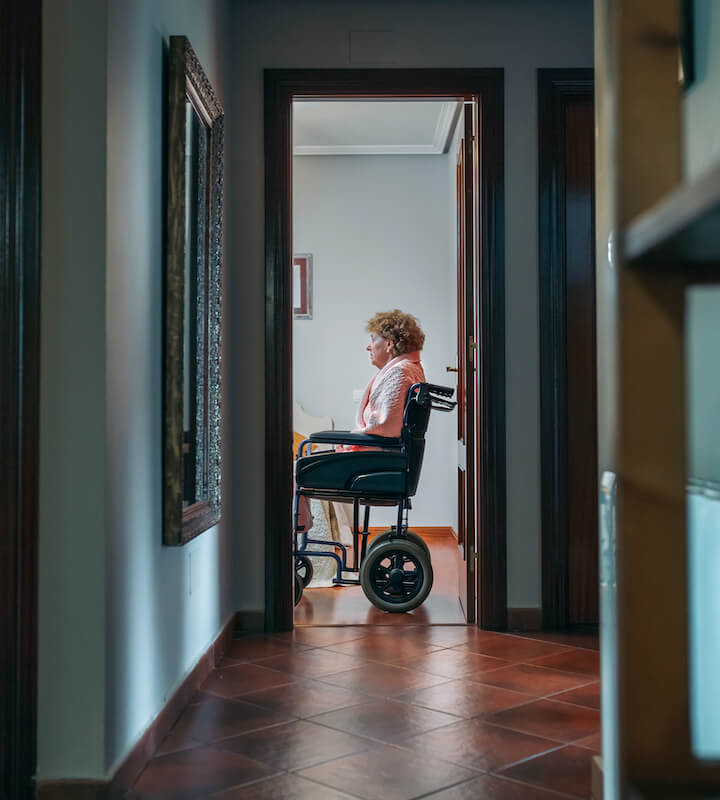As we age, maintaining social connections becomes increasingly important for our well-being, especially for seniors. Loneliness is a prevalent issue among older adults and can have significant negative effects on their physical and mental health. In this blog, we will explore the power of social connections and how they can effectively combat loneliness, enhancing the quality of life for seniors.
Understanding the Impact of Loneliness on Seniors
Loneliness is not just a passing emotion; it can profoundly affect seniors’ health and well-being. Studies show that chronic loneliness in seniors is associated with increased risks of depression, anxiety, cognitive decline, and even cardiovascular issues. Recognizing the seriousness of this issue is the first step in addressing and combating loneliness.

The Role of Social Connections:
Social connections are a crucial support system for seniors. Engaging in regular social interactions can help alleviate feelings of loneliness and enhance overall happiness. When seniors have a strong social network, they feel valued, understood, and supported, leading to improved mental and emotional well-being.
The Benefits of Social Activities for Seniors:
Participating in social activities offers numerous benefits for seniors, both physically and emotionally. Social engagements stimulate the mind, promote cognitive function, and improve memory retention. For example, engaging in conversations during social gatherings exercises seniors’ verbal skills and keeps their minds sharp. Additionally, social interactions boost self-esteem and foster a sense of purpose and belonging, providing seniors with a renewed sense of vitality and fulfillment.

Joining Social Groups and Clubs:
One effective way for seniors to combat loneliness is by joining social groups or clubs that align with their interests. For instance, joining a local book club can create opportunities for seniors to connect with like-minded individuals and engage in meaningful discussions. Whether it’s a gardening group or a hobby-based organization, being part of a group with shared interests fosters a sense of camaraderie and can lead to lasting friendships.
Embracing Technology for Social Connectivity:
In today’s digital age, technology offers various avenues for seniors to connect with others, even from the comfort of their homes. Social media platforms, video calls, and messaging apps enable seniors to stay connected with family members and friends near and far. Learning to navigate technology can open up new doors for social interactions and help bridge the physical distance between loved ones. For example, seniors can use video calls to share experiences, participate in virtual family gatherings, and maintain close bonds with distant relatives.
Engaging in Community Events:
Communities often organize events, gatherings, and workshops designed to bring people together. Seniors can actively participate in these events to meet new people and build connections within their community. Community centers, religious organizations, and local senior centers are excellent resources for finding such opportunities. Attending community events allows seniors to connect with neighbors, build a sense of community, and participate in local activities.

Volunteering and Giving Back:
Engaging in volunteer work can be immensely rewarding for seniors. It provides a sense of purpose and the satisfaction of making a positive impact on others’ lives. Volunteering also offers the opportunity to connect with fellow volunteers who share similar altruistic values, creating meaningful connections and combating loneliness through acts of kindness. For instance, seniors can volunteer at local shelters, libraries, or schools, where they can interact with others while contributing to their community.
The Power of Social Connections:
Social connections are more than just pleasant interactions; they are a prescription for overall well-being. Engaging in meaningful social interactions can combat loneliness and contribute to a happier, healthier life for seniors. Here’s how social connections positively impact various aspects of seniors’ lives:
Improved Mental Health: Regular social interactions can significantly improve seniors’ mental health by reducing feelings of isolation and enhancing their sense of belonging. Engaging in conversations, sharing experiences, and feeling heard and understood are essential components of building meaningful connections.
Enhanced Cognitive Function: Social interactions provide mental stimulation that can help maintain cognitive function and prevent cognitive decline. Engaging in discussions, problem-solving activities, and sharing knowledge keeps the brain active and sharp.
Emotional Support and Stress Reduction: Having a strong social network can act as a buffer against stress and emotional distress. Seniors who have meaningful connections can rely on their friends and family for emotional support during challenging times.

Physical Health Benefits: Social connections have been linked to improved physical health outcomes. Seniors who engage in regular social activities tend to have lower blood pressure, reduced inflammation, and better immune system functioning.
Increased Happiness and Life Satisfaction: Meaningful social connections contribute to a greater sense of happiness and life satisfaction. Seniors who feel connected to others and have a support system in place tend to report higher levels of well-being.
Loneliness can significantly impact seniors’ physical and mental health. However, social connections hold the key to combating loneliness and improving overall well-being. By participating in social activities, joining groups with shared interests, embracing technology for connectivity, engaging in community events, and volunteering, seniors can forge meaningful social connections and experience the power of human interaction. Together, let’s foster an inclusive and supportive environment for seniors, where loneliness becomes a thing of the past, and the warmth of companionship fills their lives.




